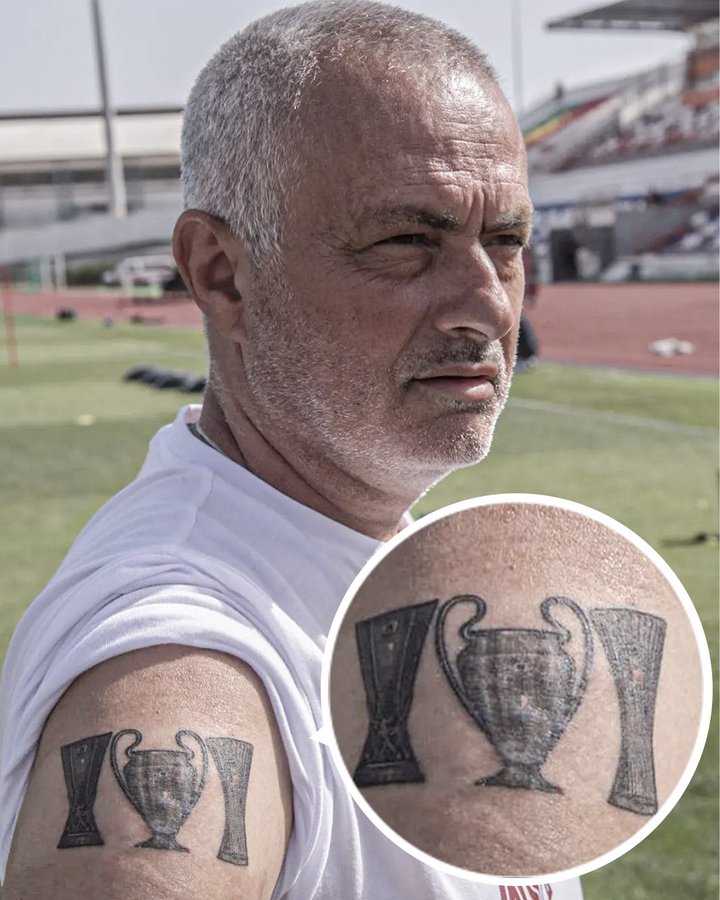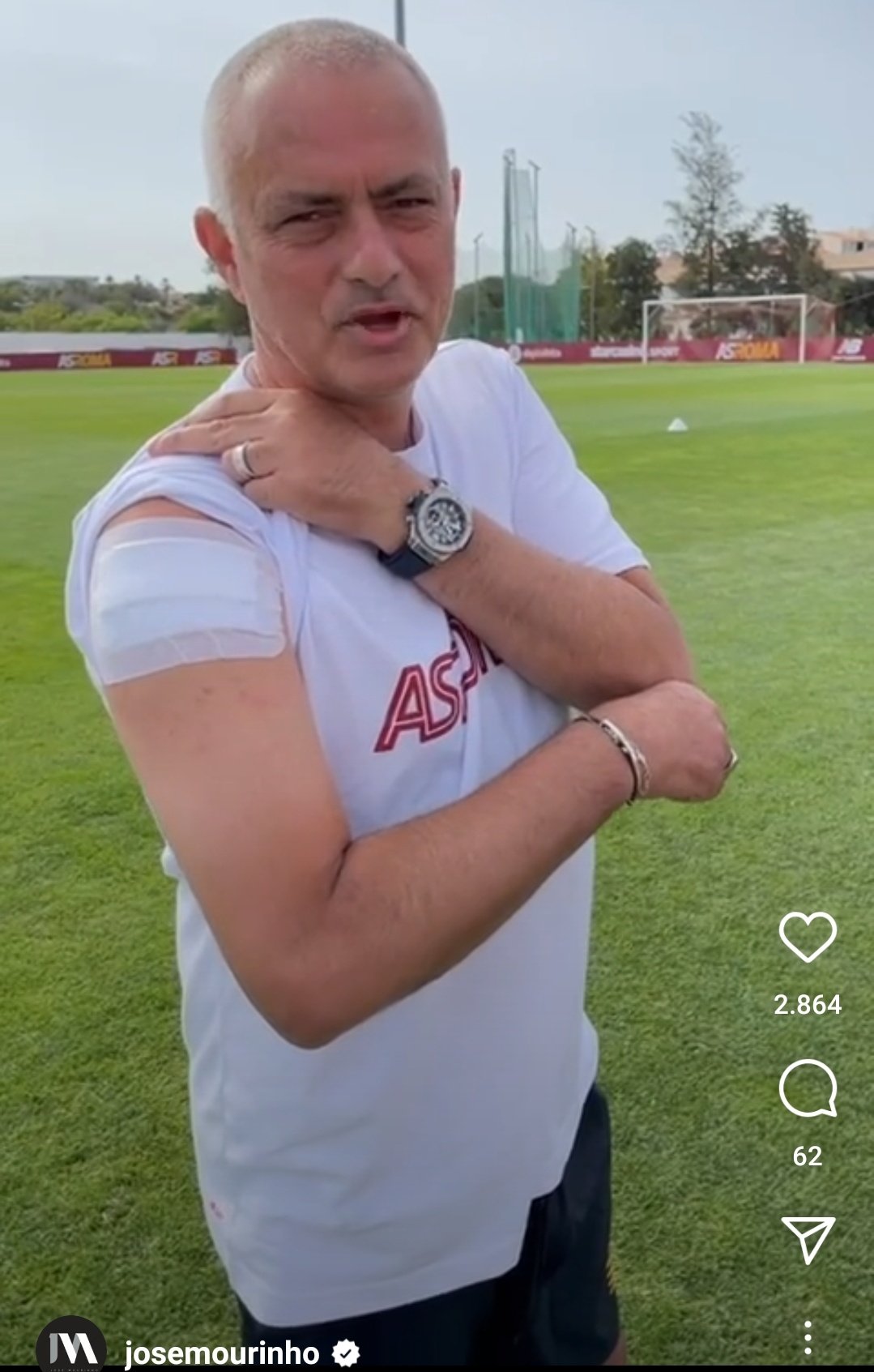Jose Mourinho hasn’t ever needed much prodding to gloat about his coaching achievements, but he has discovered a new way to do so: by getting a tattoo.

Mourinho displayed the artwork that now adorns his right upper arm — the Champions League cup sandwiched between the Europa League and Europa Conference League trophies — with the sleeve of his white T-shirt pushed back.
Mourinho became the first manager to win all three of the current European awards when he led AS Roma to the Europa Conference League championship last year.
“This is my tattoo, the joy of the Roman people led me to do it,” the 59-year-old Portuguese said on Instagram.
“Then I thought about something special, something that would honour all the clubs where I won European competitions.
“At the same time, I wanted a unique tattoo, one that, so far, I am the only one who can have it.”
With Porto in 2004 and Internazionale in 2010, Jose Mourinho won the Champions League twice. He also won the UEFA Cup with Porto in 2003, the Europa League with Manchester United in 2017, and the UEFA Cup with Roma in May.
Jose Mourinho
The current head coach of Italian Serie A team Roma is Mário dos Santos Mourinho Félix, GOIH (born 26 January 1963). He is a Portuguese professional football manager and former player.
He used to refer to himself as The Special One and is regarded as one of the best managers of all time, as well as one of the most decorated managers in history.
Career in Coaching
After a lackluster playing career in the Portuguese leagues, Mourinho transitioned into coaching. He originally worked as an interpreter for Sir Bobby Robson at Sporting CP and Porto before finding success as Robson’s and Louis van Gaal’s assistant at Barcelona.
Mourinho returned to Porto as manager in 2002, winning the Primeira Liga twice, a Taça de Portugal, the UEFA Cup, and the UEFA Champions League, Porto’s first European Cup victory since 1987. Mourinho had previously made an impression during brief stints at Benfica and Unio de Leiria.

In 2004, he moved to England with Chelsea thanks to his achievements. Early in his managerial career, Mourinho was known for his braggadocio, and he is now known for saying, “I think I’m a special one.”
He spent three seasons with the club, winning two Premier League championships, an FA Cup, and two League Cups before leaving in 2007 amid rumors that he had differences with club owner Roman Abramovich.
Mourinho joined Inter Milan in 2008 and won two Serie A titles there. In 2010, he also won the Coppa Italia, the UEFA Champions League, and the Serie A, a first for an Italian club.
With two clubs, he became one of just five coaches to win the European Cup, and later that year, he was named the inaugural FIFA World Coach of the Year.
After that, Mourinho relocated to Real Madrid, where he won La Liga in 2011–12 with a record number of points, becoming him the fifth coach to accomplish this feat. He also won the Supercopa of Spain and the Copa del Rey.
Mourinho returned to Chelsea after leaving Real Madrid in 2013, where he won the League Cup and yet another league championship before being fired in 2015 due to a string of disappointing outcomes.
After being hired by Manchester United in 2016, Mourinho’s first season saw him take home the UEFA Europa League, League Cup, and FA Community Shield. He was fired in 2018, following a string of disappointing league results for Manchester United.
He took over as manager of Tottenham Hotspur in 2019, leading them to the League Cup final in his second season before being fired in April 2021.
He was soon hired by Roma, and under his guidance, they won the first-ever UEFA Europa Conference League, making him the first manager to manage four different clubs to the final of a major European competition and to win it.
He was also the third manager to have triumphed in all three major European club competitions, and the first to complete the UEFA treble by winning the Champions League, UEFA Cup/Europa League, and Europa Conference League.

He was the first coach to spend more than £1 billion on transfers, earning him the title of Portuguese Coach of the Century from the Portuguese Football Federation (FPF) in 2015.










